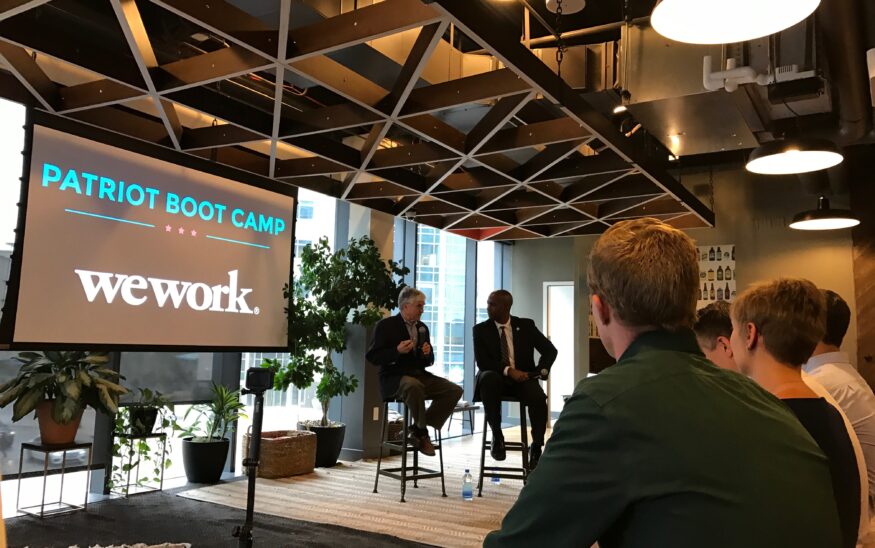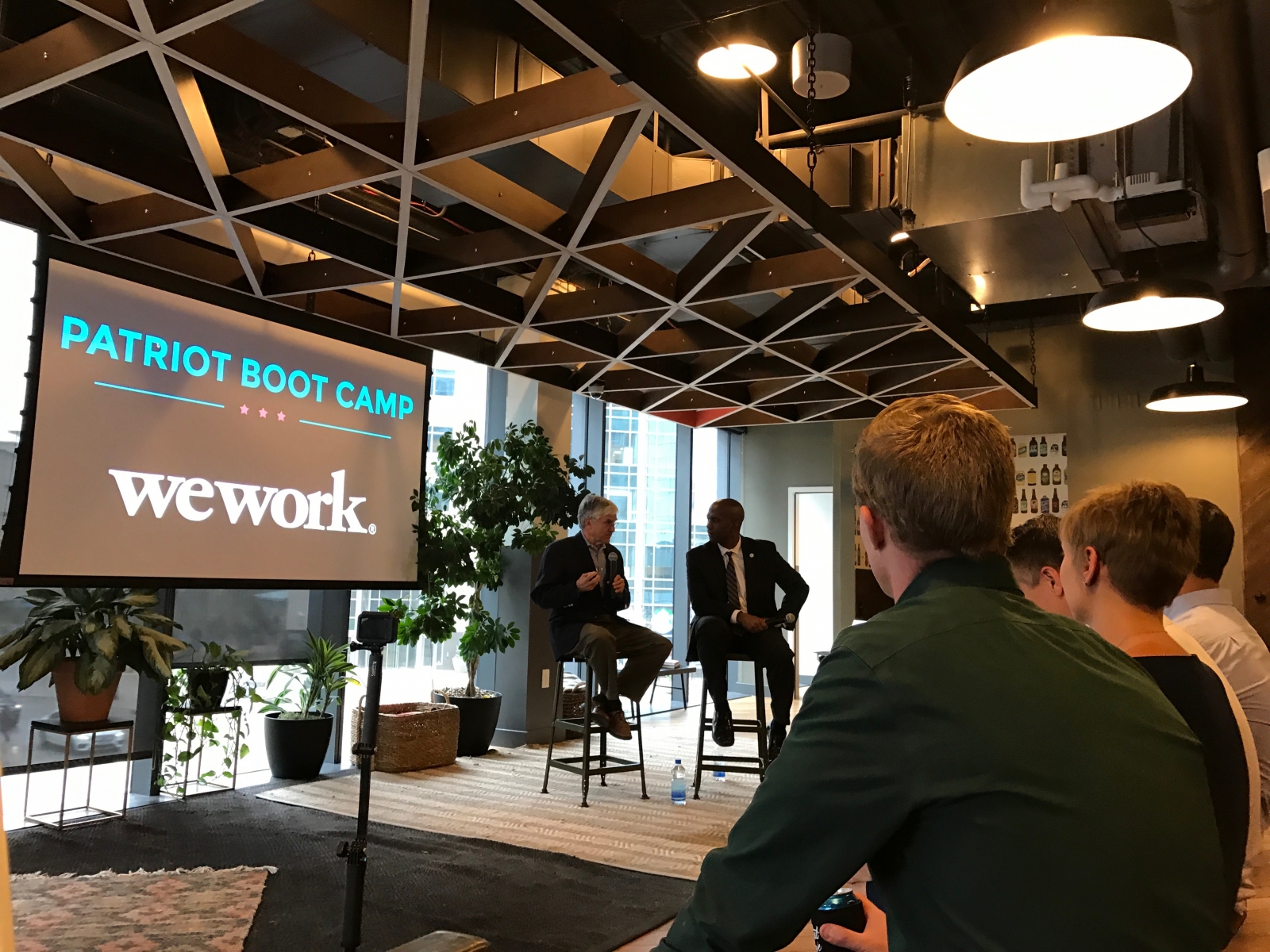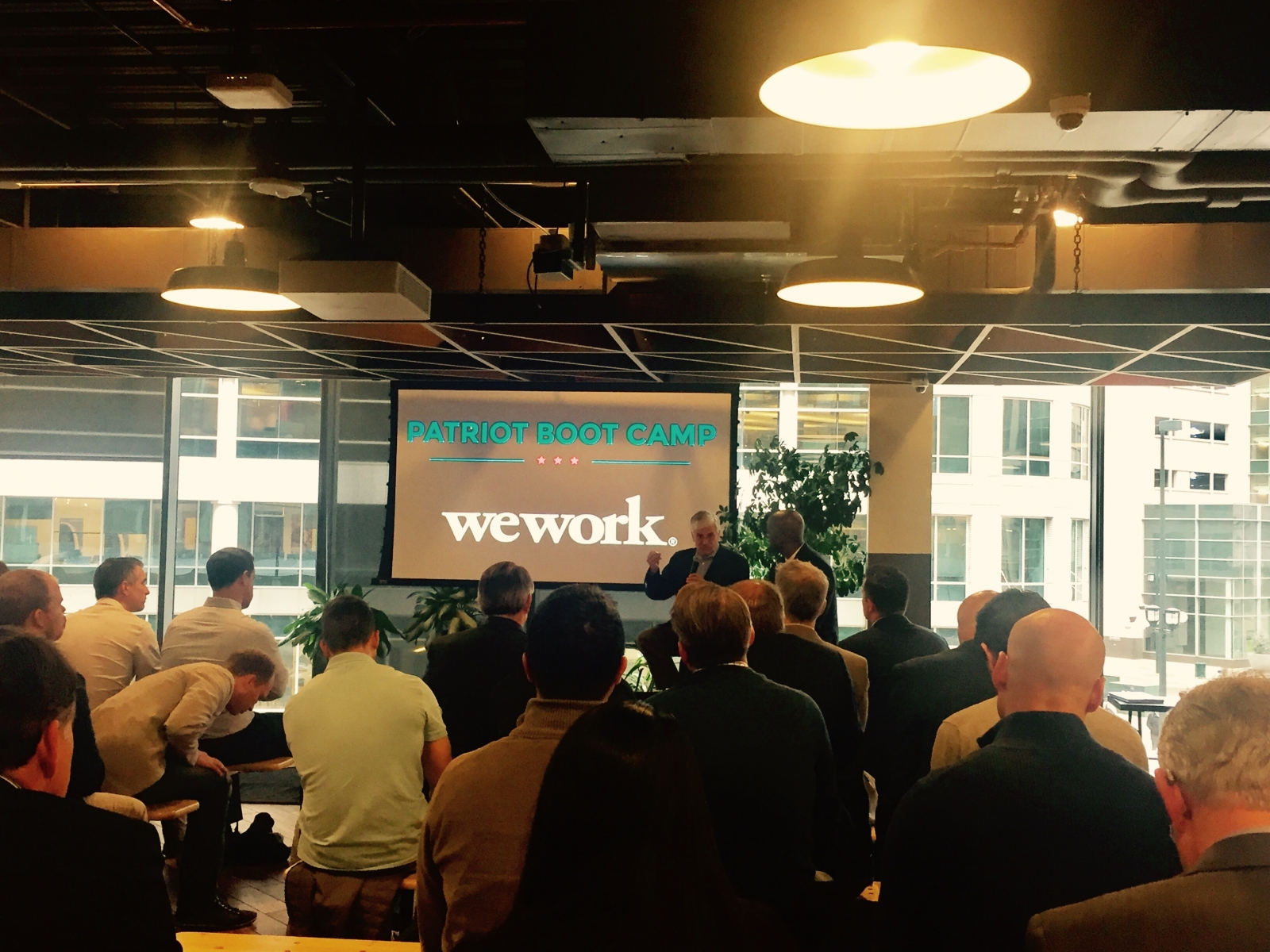How Veterans Are Changing the Economy in the 21st Century
General George Casey shares war stories and employment advice at WeWork Union Station
Gigi Sukin //April 6, 2017//


How Veterans Are Changing the Economy in the 21st Century
General George Casey shares war stories and employment advice at WeWork Union Station
Gigi Sukin //April 6, 2017//

The conversation around diversity in technology is prevalent, with programming and infrastructure surfacing to address the deficit of varied backgrounds and perspectives in technology. Through the prism of chosen experience, however, one distinguishing identity is that of the military veteran, poorly represented in the field.
Thus, retired United States Army General George W. Casey Jr., who served for 41 years, lastly as the 36th Chief of Staff for the U.S. Army from 2007 to 2011, came to Colorado April 4 for a fireside chat alongside Denver City Councilman Chris Herndon at WeWork Union Station to discuss how military veterans can and are changing the U.S. economy in the 21st century as employees and employers, alike.
"You already have the skills CEOs want," Casey told the attentive room full of miscellaneous professionals, many of whom formerly served in one of the five armed service branches:
"Teamwork, work ethic and values."
Today, Casey sits on various boards of directors for organizations, including Patriot Boot Camp, a Denver-based nonprofit on a mission to furnish active duty military members, veterans and their spouses with education, resources and the community needed to be successful technology entrepreneurs.
"The General's impact on PBC has been extraordinary," said Josh Anderson, COO of the organization. "There are very few military leaders who not only have, but are open and willing to impart the level of context and wisdom that General Casey has … he understands the fundamentally changing dynamics of our modern conflict era, and he has deep empathy and understanding for what our service men and women go through upon returning to civilian life. In an organization that bridges two dramatically different worlds – military and startup – the General's perspective is the most diverse, challenging and vital. He keeps us from building things in a startup vacuum."
Since September 11, 2001, more than 3.6 million Americans served in the U.S. military. Most of the men and women who have since emerged and transitioned from service to civilian life, came back with increased resilience, ingenuity and decisiveness, Casey said.
"The volatility of war trains these men and women for the ups and downs of business," he added.
While Casey says the private sector is, today – as opposed to the post-Vietnam War era – more engaged with the veteran population, supporting veterans as they reintegrate into the professional world isn't as simple as hiring them or writing a check to a well-aligned program.
A survey conducted by Monster and Military.com in late 2015 found that 88 percent of veterans' skill sets are relevant to civilian careers.
"In the military, I learned to focus. That was one of the most important things I needed," Casey said of specific attributes he has since carried with him.
Despite these assets, post-911 veterans continue to suffer from higher rates of unemployment than their non-military counterparts, and even when they're able to secure employment, many job-hop frequently.
Moreover, some employers are skeptical about hiring veterans, uneasy about the ramifications of posttraumatic stress disorder and other affects from the brutal conditions of service and combat. Casey recommends considering the "post-traumatic growth" of individual military veterans.
"Most emerge stronger due to the challenges they've endured," Casey said.
Casey described the need for broad societal understanding of the value veterans bring to the organizations they join. Sometimes that skill and experience materializes as individuals return to take on the civilian stress and joy of entrepreneurship.
Many large companies throughout the country have illustrated their commitment to veterans and an organizational belief in their value and skills with concentrated recruitment initiatives, such as Walt Disney Company's Heroes Work Here program, Qualcomm's Veteran recruitment program, and Dell's Veterans at Dell initiative, the latter of which includes a dedicated Veterans ERG for continued support. Additionally, efforts like Hiring Our Heroes (an initiative of the U.S. Chamber of Commerce) are supporting veterans to find meaningful employment. Casey noted JP Morgan Chase and USO as veteran-friendly employers, while Kynnie Martin, an audience member at WeWork, senior foundation representative with Xcel Energy and an Army veteran, also spoke of her company's pledge to recruit, hire and retain former members of the military into their work force.
Anderson adds DaVita to the list of local employers with veteran-specific hiring initiatives.
"The onus to reintegrate and create lives and careers after the military doesn't just lie within the VA, or with the private sector, but with the veteran. Veterans have to be willing to reach out, to reconnect, to meet veteran services halfway," Anderson said.
Casey's advice to members of the military looking forward to their next step in the professional world: Ask for help; network; don't sell yourself short.
"You've already done the hard stuff," Casey said.

























